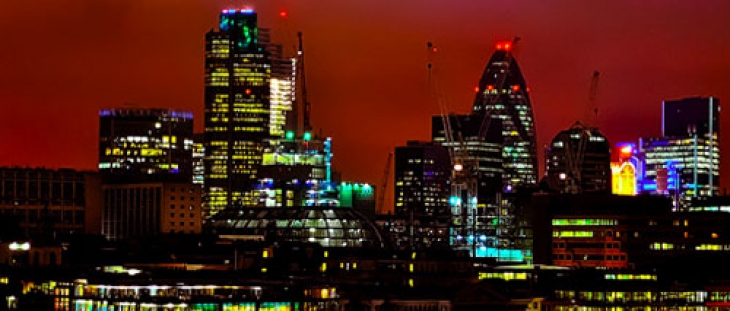
Certain cities prosper whilst others fail; Seville, for instance, was the centre of Spain’s opulent New World Empire and seemed destined to become a major financial metropolis, but never did. Others, like former colonial backwater Hong Kong, defied the odds by growing into a major trading centre. So what are the key factors distinguishing the cities that become wealthy from those that don’t? In his new book, The Evolution of Great World Cities: Urban Wealth and Economic Growth, Professor of Civil Engineering at University of Toronto, Christopher Kennedy, explores economic theory through the lens of urban history, referencing a variety of case studies, like New York and Toronto, to illustrate how urban growth and development occur. We spoke with Kennedy about his findings.
What signifies a great world city? What are the defining characteristics?
The prolific twentieth-century urbanist Lewis Mumford defined the city as “a point of maximum concentration for the power and culture of a community.” Along these lines, some writers see great world cities as command centers in the global economy. In my book, I more bluntly use wealth to signify a great world city, which is closely connected with power and control. Of course, others might rightly argue that cities can be great based on cultural factors like architecture, amazing skylines, etc., but these too tend to be a result of wealth.
How does one measure the wealth of a city?
This could be argued several ways, but for purposes of my book, I define the wealth of a city to be the net assets of its citizens. As an example, back in 1999, the wealth of the Toronto Region (Census Metropolitan Area) was about $400 billion. The 4.5 million residents of the Toronto CMA had assets totaling $486 billion and debts of $88.5 billion. The major items were real estate ($294b.), financial assets ($150b.), equity in business ($41.5b.), and motor vehicles ($15.5b.). The major category of debt was mortgages, at $69 billion.
What are the top five wealthiest cities in the world at the moment and why do you believe they hold this position?
This is a tough one, as calculations of net assets are not routinely undertaken. The cost of real estate and presence of large financial markets are good indicators though. My sense is that New York City, London and Tokyo are still the top three today, but naming the fourth and fifth is harder. Another proxy measure is the number of billionaires living in a city. In 2009, London was home to twenty-six billionaires, second in the world only to New York City, which had fifty-five. Moscow has also been high on the list of billionaires in recent years, although I’m unsure about the wealth of the average Muscovite. Wealthy cities in my view have citizens that strike the right balance between investment and consumption. These are often dense cities, counter to sprawling cities in which citizens over-consume.
Can you name a few cities that you think may be on the road to becoming wealthy or great world cities over the next couple of years?
Dubai perhaps is well on the way to becoming a great world city. It follows the four step process that was identified by economic historian Norman Gras: first, cities pass through the commercial phase, next comes the industrial stage, followed by the development of transportation and finally, we are left with a financial centre. Dubai benefits from the oil industry, and has a growing (and impressive) international airport. In November 2005, the Dubai Gold and Commodities Exchange opened – the first commodities derivative exchange in the Middle East. And then there is the massive 2,717-foot-tall Burj Khalifa with five million square feet of floor space all in one building. As for others, Shanghai, obviously comes to mind; it will be interesting to see how its competition with Hong Kong plays out in the next few years.
You claim that infrastructure plays a key role in determining the formation of a great world city – what city do you think best exemplifies
this point?
The greatest example is New York City, which profited hugely from the opening of the Erie Canal. Along with some high stakes politics, the canal enabled New York City to replace Philadelphia as the financial capital of America. There are other examples too, such as the Gotthard Tunnel, which helped to establish both Zurich and Milan as financial centres.
Montreal was once the economic hub of Canada. What caused this to change and why did Toronto takes its place?
I discuss the rise of Toronto relative to Montreal in the Evolution of Great World Cities. There was a long, drawn out competition between the two that then ended quite abruptly in the 1970s. Toronto first began to catch Montreal as an industrial centre. It also made far better transportation infrastructure investments; Mirabel Airport was a disaster. But it was the Quebec separatists that really sealed the decline of the St. James Street exchange and the rise of Bay Street.
In your personal opinion, which is better, city or country life?
For this one I’ll defer to Kevin Lynch, an MIT urban planner. Lynch notes that the ideal house has a front-door onto a lively urban promenade, with a backdoor to silent countryside.
Christopher Kennedy will be giving a talk this evening about his book The Evolution of Great World Cities at the Rotman School of Management, University of Toronto (101 College Street) from 5-6pm.














